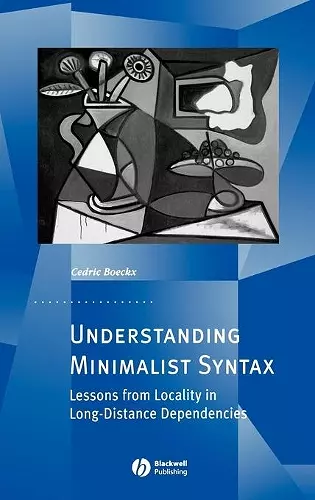Understanding Minimalist Syntax
Lessons from Locality in Long-Distance Dependencies
Format:Hardback
Publisher:John Wiley and Sons Ltd
Published:4th Jul '07
Currently unavailable, and unfortunately no date known when it will be back

Understanding Minimalist Syntax introduces the logic of the Minimalist Program by analyzing well-known descriptive generalizations about long-distance dependencies.
- An introduction to the logic of the minimalist program - arguably the most important branch of syntax
- Proposes a new theory of how long-distance dependencies are formed, with implications for theories of locality, and the minimalist program as a whole
- Introduces the logic of the minimalist program by analyzing well-known descriptive generalizations about long-distance dependencies, and asks why they should be true of natural languages
- Rich in empirical coverage, which will be welcomed by experts in the field, yet accessible enough for students looking for an introduction to the minimalist program. <
“In the space of just 150 pages Boeckx provides an accessible and assured introduction to minimalism; a terrific critical review of the evidence for cyclic movement; a sympathetic yet powerful critique of phase theory; and a new approach to the cycle based on an intuitively natural version of Least Effort. This really is a tour de force and can be read profitably by expert and neophyte alike.”
Norbert Hornstein, University of Maryland
“The book investigates the venerable topic of successive cyclic movement in order to shed light on the nature of the minimalist program. It is a truly impressive achievement which draws important conclusions regarding the most fundamental issues of the minimalist program and puts back the phenomenon of successive cyclic movement in the center of syntactic theorizing. It should have a strong impact on the field.”
Željko Bošković, University of Connecticut
“This is a concise study of how locality and anti-locality effects can be handled within minimalism: it is up-to-date, thought-provoking and full of insightful and original ideas – ideal for use as a ‘specialist topic’ on an advanced syntax course.”
Andrew Radford, University of Essex
ISBN: 9781405157940
Dimensions: 231mm x 155mm x 16mm
Weight: 386g
192 pages